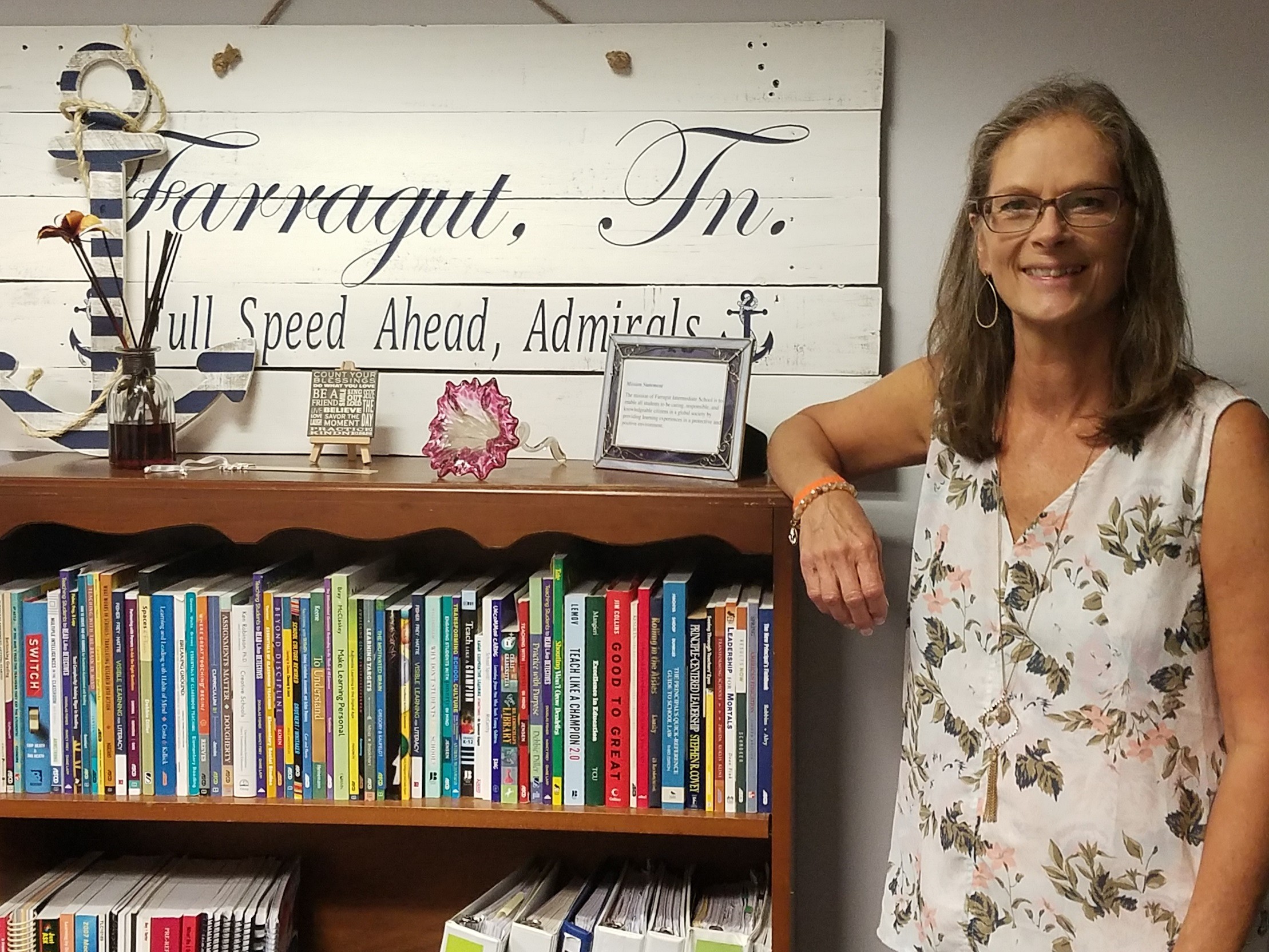The years from third to fifth grades are important ones, says Farragut Intermediate School principal Deborah Adorante. The stakes for statewide tests are higher, and the children are learning good work and study habits. They are moving beyond the basics of reading for comprehension and into reading to satisfy their own need to know. They’re curious about the world and about themselves, and they’re taking seriously the question of what they want to be when they grow up.
“It’s the best age,” Adorante says. “It’s amazing how much growth they make.”
Adorante also knows that it can be scary coming to a new school, particularly one that has 1,100 children in it.
She wants the former second graders who come to her school to be eager, not anxious. She is considering a day later this year when second-grade teachers from feeder primaries will spend a day at the intermediate school while third-grade teachers go to the primary schools to meet the students.
“I want to make that transition from primary [K-2] to intermediate school as painless as possible,” she says. “We want our families to feel comfortable.”
This is Adorante’s first year as principal. She has been at Farragut Intermediate since 2007 and was assistant principal for the last five years.
“I’ve planted roots here,” she says.
She and her husband, John, both grew up in upper East Tennessee and have been married for 34 years. Their older daughter is in her first year as a teacher at Blue Grass Elementary, where Adorante has also taught, and their younger daughter is a senior at the University of Tennessee.
“We have lots of conversations about education in my household,” she says with a laugh.
Adorante never seriously considered any career other than education.
“I knew I wanted to be a teacher from first grade on,” she says. “I have such respect for teachers. This is truly a calling for most of them.”
She has a crop of excited new teachers at her school, as well as “teachers who have been here 20 years who are just as excited,” she says.
Adorante says teaching is different from years past because teachers have more knowledge available to them than ever before, but there are more rigorous expectations for them, too. Teaching is more of a collaborative effort now.
“You can’t be an island” in the classroom anymore, Adorante says. “We all have strengths and areas we can strengthen.”
During the school year, she, the teachers and the other administrators get the children ready for the high-stakes reality of TN Ready, the state-mandated testing process.
Of the current emphasis on testing in public education, she says, “The purpose is to make sure our students will be ready for the jobs that will be out there in the future.”
But it doesn’t mean forgetting about childhood or the softer skills that children will also need in the world.
“We have to have high expectations for every child, but we also have to manage each child’s needs,” Adorante says. “It’s still important to be nurturing and caring. Kindness and respect go a long way. I want this to feel like home to our students and staff. I want us to continue to learn— adults and students.”



